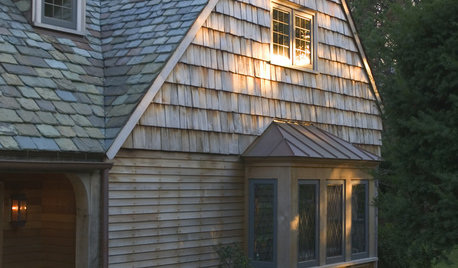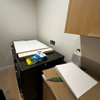My last 2 clothes washers only lasted 1/2 year each
in ny zone5
12 years ago
Related Stories

KIDS’ SPACES9 Pro Tips to Create a Long-Lasting Kids’ Room
Hear what professional designers have to say about turning your nursery into a kids’ room that will last through the preteen years
Full Story
MATERIALSRaw Materials Revealed: Brick, Block and Stone Help Homes Last
Learn about durable masonry essentials for houses and landscapes, and why some weighty-looking pieces are lighter than they look
Full Story
EXTERIORSRoofing Materials: Slate Makes for Fireproof Roofs That Last
It stands up to weather and fire without losing its high-end look. But can your budget handle it?
Full Story
HOUSEPLANTSMeet a Long-Lasting Houseplant With a Forgiving Heart
Low light and little watering won't scar Zee Zee plant for life; this East Africa native has a tolerant nature and an exotic beauty
Full Story
PLANTING IDEASGreat Garden Combo: A Fall Landscape Scene That Lasts
Span the seasons with trees, shrubs and grasses that offer color and texture in abundance
Full Story
DIY PROJECTSMake a Beautiful and Long-Lasting Driftwood Centerpiece
Add succulents to found wood for an easy arrangement that looks straight from a designer florist's shelf
Full Story
HOLIDAYSMake a Showstopping Fall Centerpiece That Lasts
With flowers that will dry beautifully, succulents and wood circles, this organic arrangement will wow guests all season long
Full Story
HOUSEKEEPINGHow to Clean Your Cookware So It Lasts
Avoid damage during everyday cleaning and stain scrubbing, with these tips for pots and pans made of popular materials
Full Story
GARDENING GUIDESHow to Design a Garden That Lasts
Climates are changing. Wildlife is evolving. Can your garden keep up?
Full Story
ROOFSThis Long-Lasting Roofing Material Works With Many Styles
With their durability and wide range of colors and molded shapes, concrete roof tiles are worth a look
Full StoryMore Discussions









bonesoda
dadoes
Related Professionals
Montrose Kitchen & Bathroom Designers · University City Kitchen & Bathroom Remodelers · Rancho Palos Verdes Kitchen & Bathroom Remodelers · Tulsa Kitchen & Bathroom Remodelers · Westminster Kitchen & Bathroom Remodelers · Effingham Cabinets & Cabinetry · West Hollywood Custom Closet Designers · Chatsworth Custom Closet Designers · La Jolla Custom Closet Designers · Conyers Flooring Contractors · Green Bay Flooring Contractors · Harrisburg Flooring Contractors · Land O' Lakes Flooring Contractors · Medway Flooring Contractors · Miami Flooring ContractorsCavimum
in ny zone5Original Author
in ny zone5Original Author
asolo
dadoes
in ny zone5Original Author
dadoes
mara_2008
in ny zone5Original Author
User
mrb627
in ny zone5Original Author
dadoes
in ny zone5Original Author
dadoes